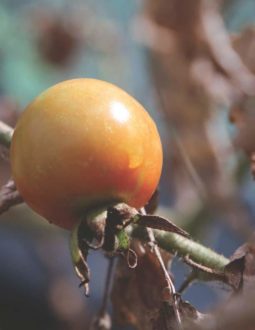SAN JUAN, Puerto Rico – The damage to small farms in Puerto Rico from Hurricanes Maria and Irma in 2017 brought to light the disconnect between communities interested in urban agriculture initiatives and local governments that don’t recognize their social and economic benefits. To provide solutions, researchers at Ana G. Méndez (formerly Metropolitan University) in San Juan have developed a guide that they hope will help drive the groups toward common ground.
“Guideline for the Development of Community-Based Urban Orchards in Puerto Rico” lays a foundation to strengthen urban agriculture on the island by providing recommendations for policymakers, municipalities, and other local officials to better work with small urban farmers. The publication was developed based on the results of a Southern SARE-funded Research & Education Grant project (LS14-263), “Multisectoral and Transdisciplinary Coalition to Spearhead the Development of a Cohesive Network of Local Limited-resources Urban Community Farmers for Sustainable Agriculture Using the Capital City of Puerto Rico as a Case Study.” It’s the first study focusing on a systems approach to urban agriculture in Puerto Rico.
In the study, researcher Maria Calixta Ortiz and her colleagues found that urban community gardens, specifically orchards, serve an important social, economic and environmental function in the community – influencing cultural experiences, supporting community values and knowledge sharing, satisfying demand for local foods, and utilizing empty urban spaces.
“Groups interviewed in our study recognized the potential of urban agriculture as a strategy for the socioeconomic development of disadvantaged communities,” said Ortiz. “Urban farming is seen as an opportunity not only as an income for underserved populations, but also as an opportunity for urban revitalization, social interactions and community development. But urban farmers need support from institutions, such as municipalities.”
Ortiz said that local governments are failing to recognize the benefits that urban agriculture initiatives can bring to the island. Farmers, she said, lack the resources and support to maintain a viable, profitable business, which was most evident following the damage from Hurricanes Maria and Irma. Researchers documented 60 percent damage to urban orchards in San Juan communities and attributed much of the losses to lack of emergency preparedness resources and tools to reduce losses in infrastructure or crops.
“From queries with government office and agencies, we concluded that there are many factors that have prevented the enactment of public policy for the development of urban agriculture in Puerto Rico,” said Ortiz. Examples included urban agriculture not perceived as harmonious with urban land-use classification, regulations preventing the development of initiatives in areas marked for industrial or commercial use, lack of value of agrarian uses of land, and traditional views of big-scale agriculture that limit incentives for small farmers.
“This research provided recommendations to support and strengthen urban agriculture practices in Puerto Rico,” said Ortiz. And indeed, their efforts are making headway.
New language in public policy is being drafted to include urban orchards in the town planning of the Municipality of San Juan; the first urban agricultural fair was developed that connected urban agriculture with community participants interested in urban agriculture, including teachers and students; and several urban orchards benefited from hurricane recovery efforts following networking with university representatives and community groups.
In the publication, “Guideline for the Development of Community-Based Urban Orchards in Puerto Rico”, researchers outline how government officials and urban farmers can connect to address current needs, including government support, access to land, economic resources, knowledge sharing and education and training. The online publication also provides a framework for establishing community-based orchards based on the recommendations provided in the study.
Published by the Southern Region of the Sustainable Agriculture Research and Education (SARE) program. Funded by the USDA National Institute of Food and Agriculture (NIFA), Southern SARE operates under cooperative agreements with the University of Georgia, Fort Valley State University, and the Kerr Center for Sustainable Agriculture to offer competitive grants to advance sustainable agriculture in America's Southern region. This material is based upon work that is supported by the National Institute of Food and Agriculture, U.S. Department of Agriculture, through Southern Sustainable Agriculture Research and Education, under sub-award number: LS14-263. USDA is an equal opportunity employer and service provider. Any opinions, findings, conclusions, or recommendations expressed in this publication are those of the author(s) and do not necessarily reflect the view of the U.S. Department of Agriculture.
